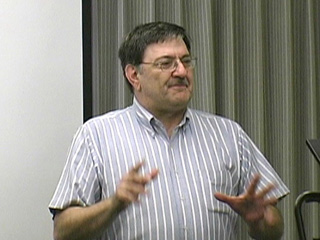It’s mid-July. You’re at the beach with a good book, a million mental miles away from school. Why is this the perfect time to start thinking concepts?
To answer this question, watch a little clip of this video that shows Dr. Gerald Nosich explaining the power of concepts and why they should be at the center of all learning. He teaches at the collegiate level and is a member of the Foundation for Critical Thinking.
http://www.criticalthinking.org/video/player.php?VID=GN-CTBarriers10&VS=GN-CTBarriers1
As Dr. Gerald Nosich notes, concepts are “thinking tools” that allow us to make sense of new phenomena. One example he gives is the geological concept of how the plates of the earth move. Once students deeply understand that the earth is made up of a series of plates and that these plates move, they can make sense of their world in a new way. They look out their window and interpret the landforms they see in a new, powerful way.
This helps us see that concepts are not “fluff” or meant for fun warm-up activities to help students connect to the content (“What does freedom mean to you?). The right concepts, explored and understood deeply, alter the way we think and give us the tools to interpret our world in new ways.
So, as you sit on the beach with your book today, take time to wonder:
How does my understanding of universal concepts (power, freedom, systems, order, chaos, etc.) shape my way of interacting with the world?
How does my understanding of micro-concepts or discipline-specific concepts (trade, supply/demand, ratio, colonization, rhyme, evolution, etc.) shape my way of interacting with the world?
As you ponder these things AWAY from the school environment, it becomes clear that they are more than teacher-tools. They are life tools. And the more you become aware of how you use them in the real world, the easier it will be to employ them in the classroom!
